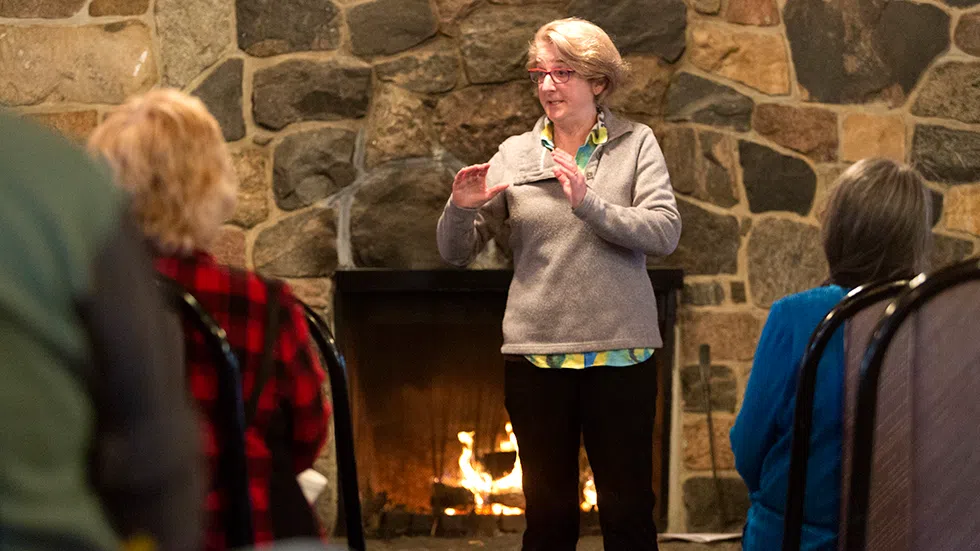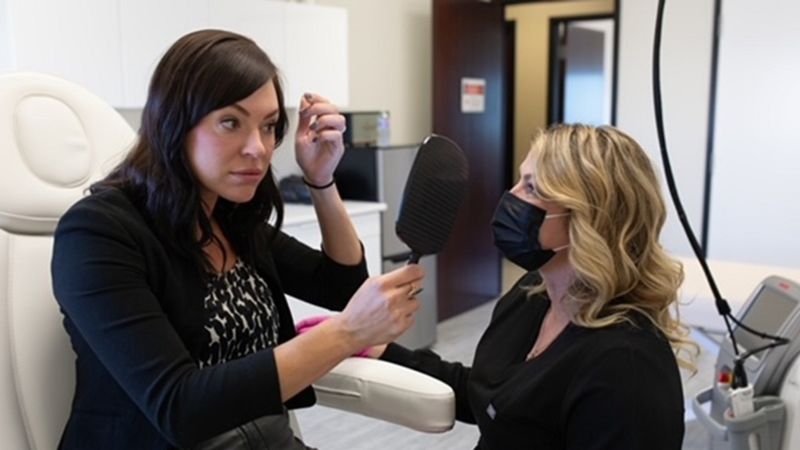
Fireside discussion highlights land-based education
The pops and crackles of a fire were background noise to an informal discussion between educators about the merits of land-based teaching.
On April 24, Par Place hosted an Around the Campfire discussion led by Renee Carrière, a teacher from Cumberland House with over 35 years of experience on the lands. The discussion highlighted the work she completed through a McDowell Foundation research grant, while looking at land-based teachings as education.
Carrière suggested land-based teaching and education are a way to engage Indigenous students, who according to a report tabled by the provincial child and youth advocate, graduate at half the rate of their non-Indigenous peers.
“We have, 50 per cent of the population that is not engaged, so we need to try different practises, strategies, different environments,” Carrière said. “We have a classroom, but that’s one environment, why can’t we have a different environment?”


